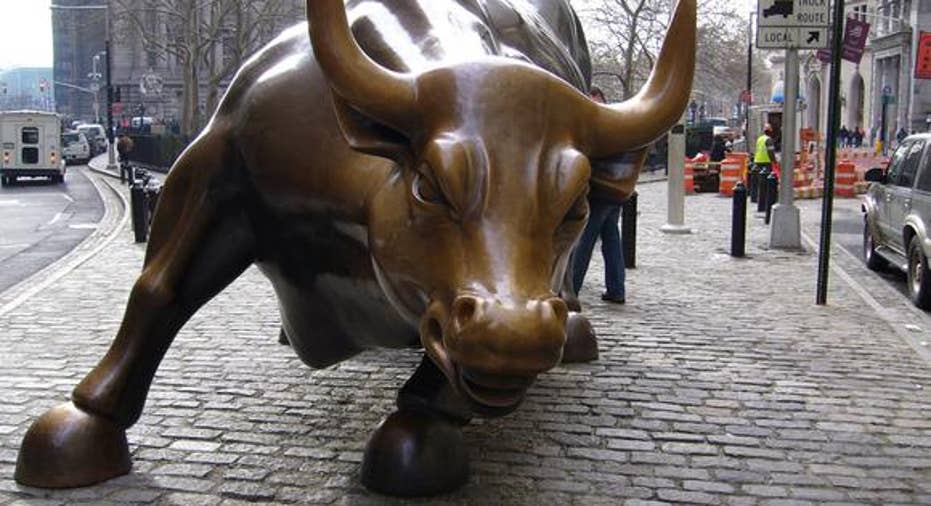What Does "Bullish" Mean in Stock Trading?

Photo: Flickr/James Manners.
Simply put, "bullish" means that an investor believes that a stock or the overall market will go higher, and "bearish" means that an investor believes a stock will go down, or underperform. However, bullish can mean different things -- especially for short-term and long-term traders.
Bullish short-term tradingIf a short-term trader is bullish, he or she believes that a stock will go up in the coming days, weeks, or even minutes. This may be based on analyzing stock charts or intraday volume and price action. In these cases, the bullish viewpoint has nothing to do with the underlying company -- for instance, if a trader believes a stock is oversold, he may buy shares in the hopes of a quick reversal.
Other short-term traders are bullish because they're betting that some near-term event will happen in a favorable manner. For example, a trader may buy a stock the day before its quarterly earnings are released, hoping that the company will beat expectations.
Bullish long-term tradingWhen an investor is bullish for the long term, it means that he or she has a favorable view of the company's future and/or believes that the stock is undervalued at the current share price. For example, if you think that Apple is cheap at 11 times TTM earnings, and that the company will continue to dominate the market in its key product areas, we could say that you're bullish on Apple stock.
Bullish on the market or economySometimes, the term is used to describe the entire stock market or economy. For example, you may read that a certain economist has a bullish view on the stock market in 2016, which means that this individual believes the market will rise this year. Or, if you have a bullish view of the U.S. economy means you believe there will be significant GDP growth and other positive economic developments. Just like stocks, bullish views on the entire stock market or economy can be of the short-term or long-term variety.
Similarly, a bull market refers to when the overall stock market has a sustained upward trend, generally lasting for several years. The period from 2009-2015 can be characterized as a bull market.
This article is part of The Motley Fool's Knowledge Center, which was created based on the collected wisdom of a fantastic community of investors. We'd love to hear your questions, thoughts, and opinions on the Knowledge Center in general or this page in particular. Your input will help us help the world invest, better! Email us atknowledgecenter@fool.com. Thanks -- and Fool on!
The article What Does "Bullish" Mean in Stock Trading? originally appeared on Fool.com.
The Motley Fool owns shares of and recommends Apple. Try any of our Foolish newsletter services free for 30 days. We Fools may not all hold the same opinions, but we all believe that considering a diverse range of insights makes us better investors. The Motley Fool has a disclosure policy.
Copyright 1995 - 2016 The Motley Fool, LLC. All rights reserved. The Motley Fool has a disclosure policy.



















